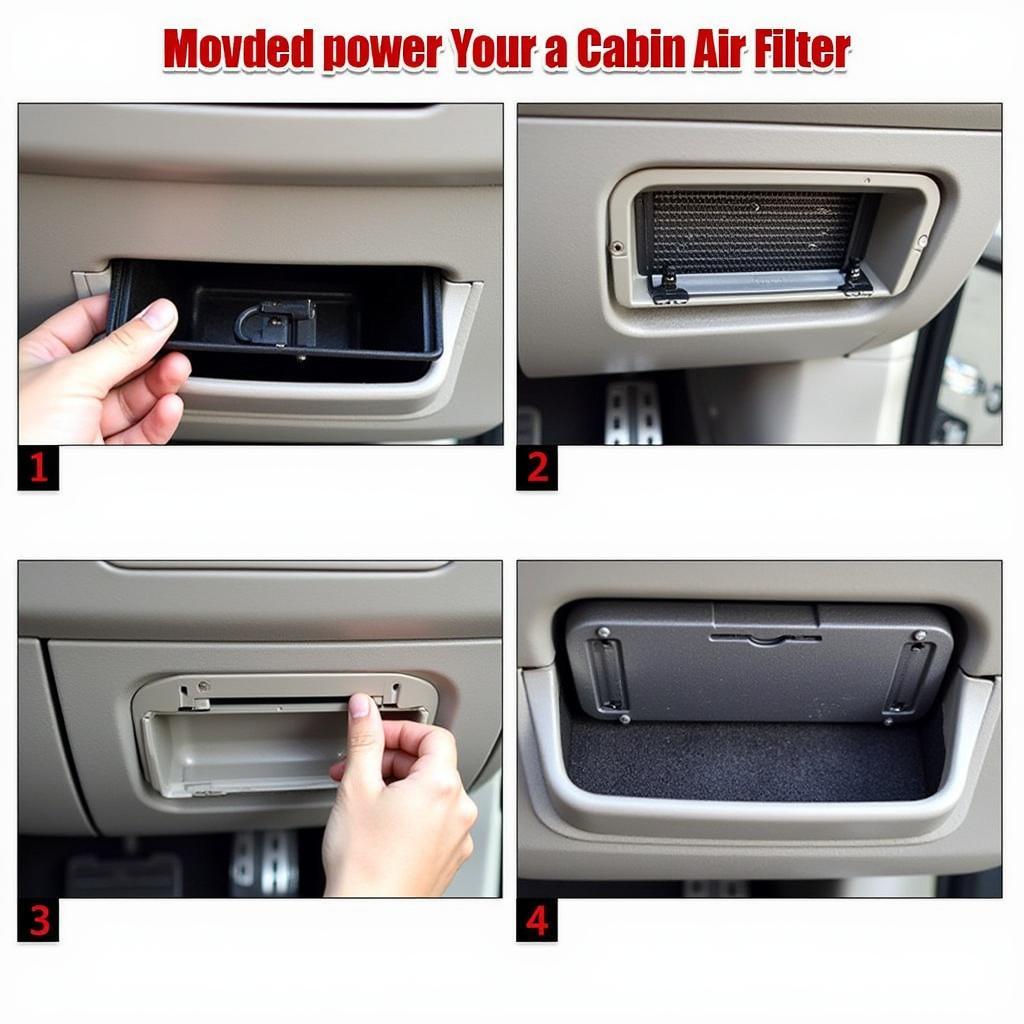A car AC that smells like vinegar is a common problem that can be caused by a buildup of bacteria and mold on the evaporator core. When the AC is turned on, the bacteria and mold are released into the air, resulting in a sour, vinegar-like smell.
What Causes a Car AC to Smell Like Vinegar?
The most common cause of a car AC smelling like vinegar is a clogged drain line. The evaporator core, responsible for cooling the air, naturally produces condensation. This condensation collects in a drain pan and exits the vehicle through the drain line.
However, over time, dirt, debris, and even insects can clog this drain line. This blockage causes the condensation to back up into the drain pan, creating a breeding ground for bacteria and mold. These microorganisms thrive in dark, moist environments and emit a foul odor, often described as a vinegar-like smell.
 Clogged Car AC Drain Line
Clogged Car AC Drain Line
How to Get Rid of Vinegar Smell in Car AC
Fortunately, fixing a car AC that smells like vinegar is often a straightforward process. Here’s a step-by-step guide to help you eliminate the odor:
1. Locate the AC Drain Line: The AC drain line is typically located on the firewall on the passenger side of the vehicle. It’s a small, rubber or plastic hose that protrudes through the firewall.
2. Inspect the Drain Line: Check the drain line for any visible clogs. You can try using a straightened wire coat hanger to dislodge any debris.
3. Flush the Drain Line: Using a funnel, pour a solution of warm water and white vinegar (50/50 mix) down the drain line. Allow the solution to sit for about 30 minutes to kill bacteria and mold.
 Flushing Car AC Drain Line
Flushing Car AC Drain Line
4. Flush with Water: After 30 minutes, flush the drain line with clean water to remove any remaining cleaning solution.
5. Clean the Evaporator Core (Optional): If the smell persists, you may need to clean the evaporator core. This is a more involved process that may require removing parts of the dashboard. You can purchase specialized evaporator core cleaners at most auto parts stores.
6. Replace the Cabin Air Filter: The cabin air filter can also harbor bacteria and mold. It’s a good idea to replace it at least once a year or more frequently if you live in a dusty or polluted area.
 Replacing Cabin Air Filter
Replacing Cabin Air Filter
Tips for Preventing Car AC Odor
- Run the AC Regularly: Even during colder months, run your AC for a few minutes every couple of weeks. This helps to prevent moisture buildup and keep the system lubricated.
- Park in the Shade: When possible, park your car in the shade to reduce the amount of heat buildup inside the vehicle, which can contribute to condensation and mold growth.
- Keep the Interior Clean: Regularly clean the interior of your car, including vacuuming the carpets and wiping down surfaces, to minimize the amount of dust and debris that can get sucked into the AC system.
“Regular maintenance is key to preventing most car AC issues,” says John Miller, a certified automotive technician with over 20 years of experience. “A simple check of the drain line and a quick flush can save you from dealing with unpleasant smells and potentially costly repairs down the line.”
Conclusion
A car AC smelling like vinegar can be an unpleasant experience, but it’s usually a simple fix. By following the steps outlined above, you can eliminate the odor and keep your car’s AC system running smoothly. Remember, regular maintenance is crucial to prevent future issues and ensure a comfortable and odor-free driving experience.
If you’re uncomfortable performing these steps yourself or the problem persists, don’t hesitate to contact a trusted mechanic or reach out to AutoTipPro at +1 (641) 206-8880. We’re located at 500 N St Mary’s St, San Antonio, TX 78205, United States, and we’re always happy to help you with all your car maintenance needs.




Leave a Reply